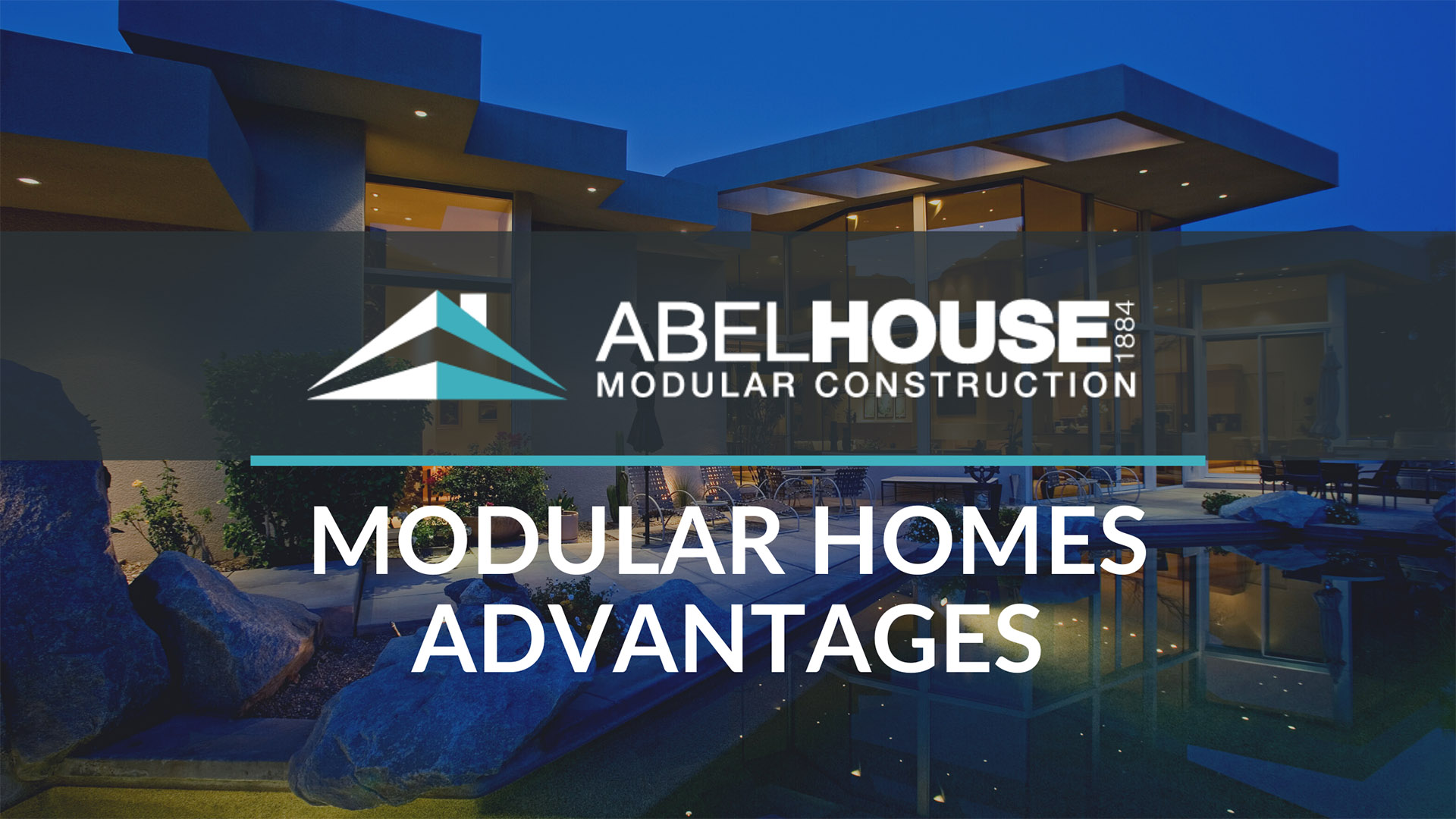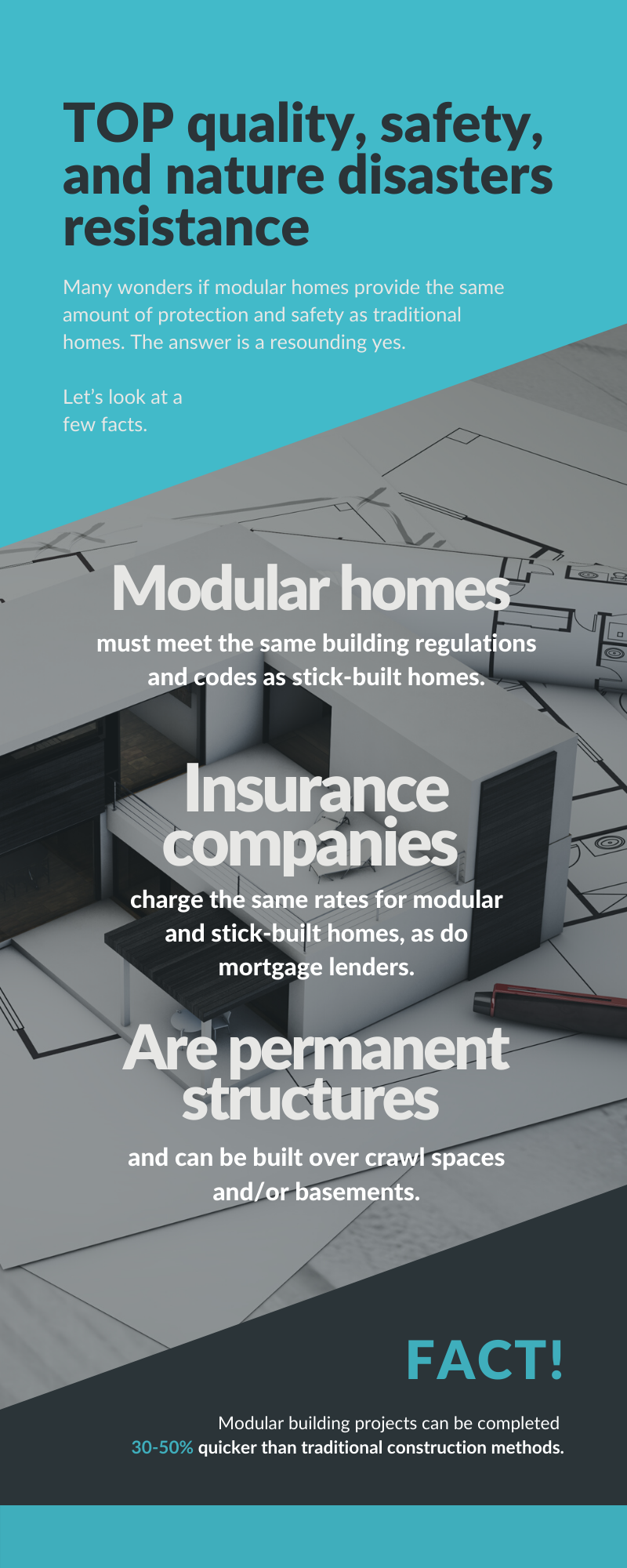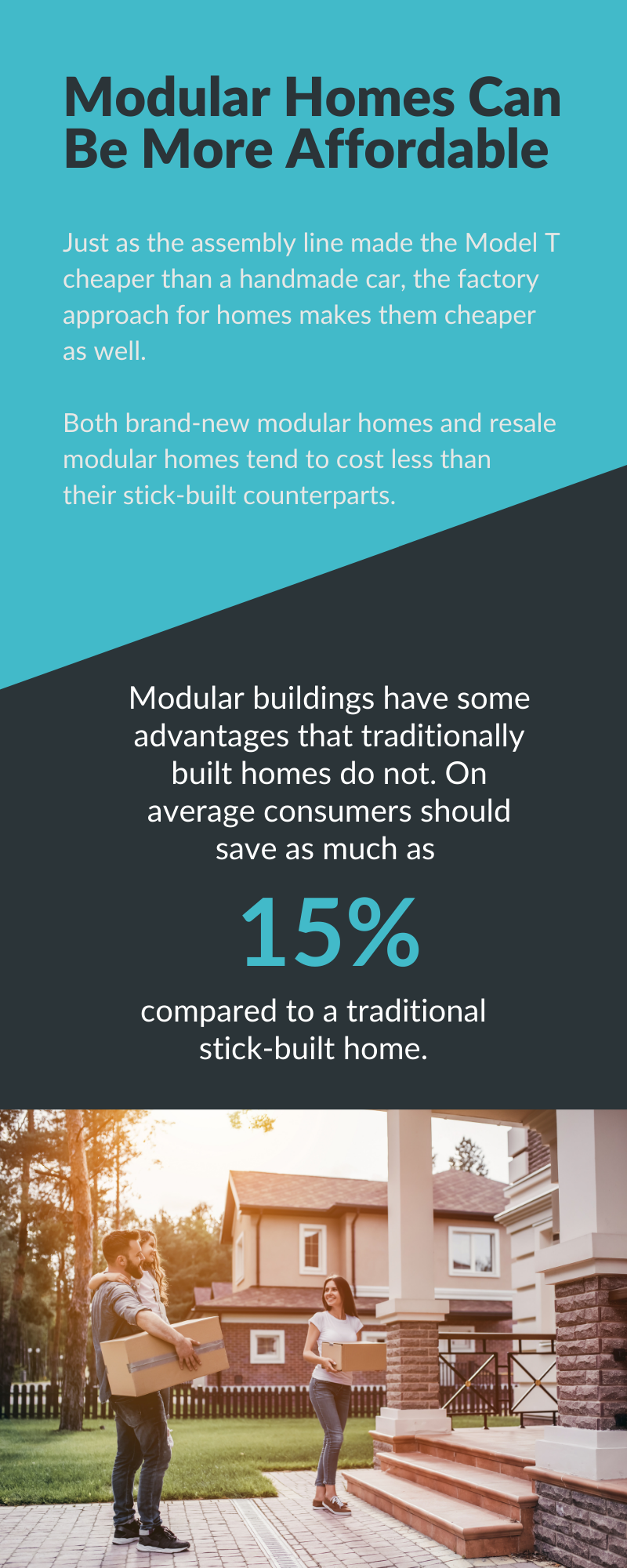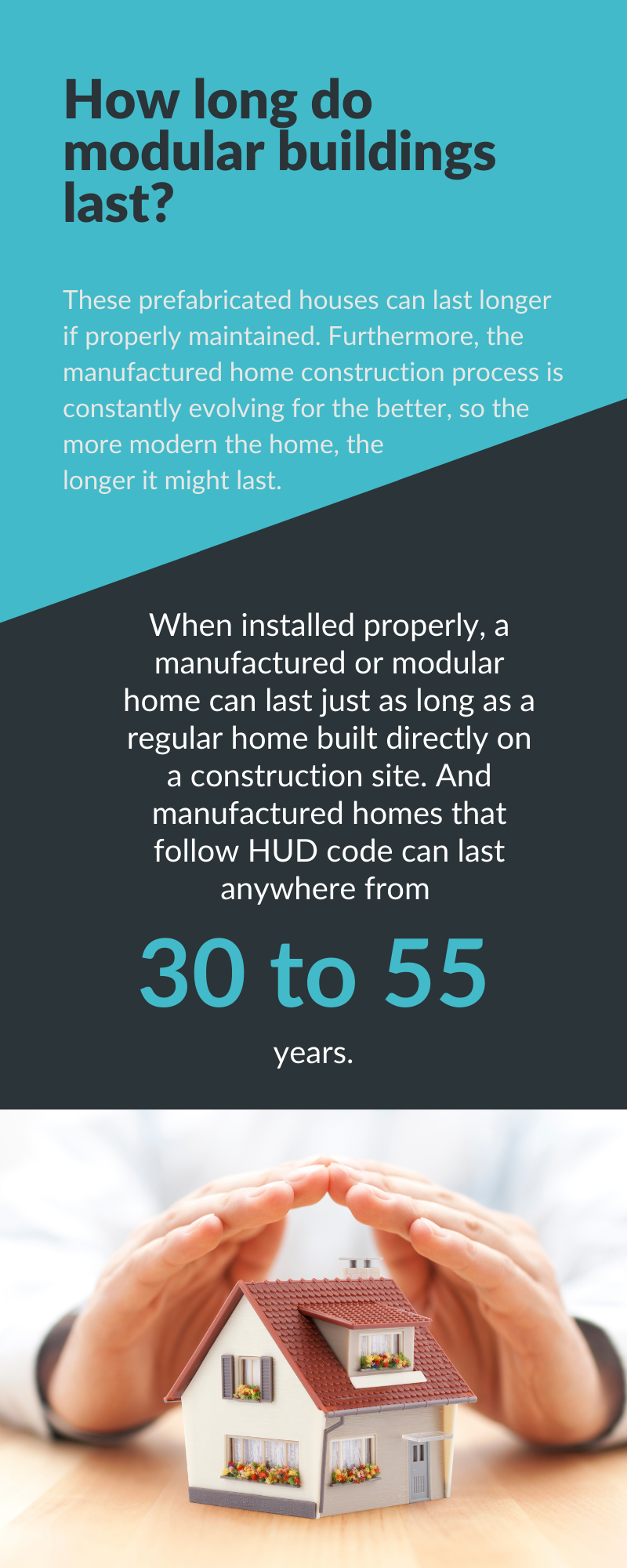
“Building houses prefabricated – in the process using less time, fewer materials, and using both more efficiently – is the sanest and the wisest recipe for home construction, for now, and the future.” – Robert Redford
Modular buildings represent an excellent opportunity for home-buyers to purchase their own homes while reducing overall costs. There is even potential for a good investment for the resale of a well-maintained home in a good location.
Pros of Modular Homes
Time precision
Modular building projects can be completed 30-50% quicker than traditional construction methods. The assembly/construction jobs on modular homes are generally completed on schedule because they do not have to deal with the effects of weather. Also, quality control is easier to manage. Completed modules are covered during shipping and while waiting onsite to be assembled. The modules are placed on the foundation that has been already constructed as per the design.
TOP quality, safety, and nature disasters resistance
Many wonder if modular homes provide the same amount of protection and safety as traditional homes. The answer is a resounding yes. Let’s look at a few facts.
- Modular homes must meet the same building regulations and codes as stick-built homes.
- Insurance companies charge the same rates for modular and stick-built homes, as do mortgage lenders.
- Modular homes are permanent structures and can be built over crawl spaces and/or basements.
These facts show that the government and private businesses see no difference between modular and traditional homes when it comes to value and risk. In fact, there is anecdotal evidence that modular homes may fare better in severe weather events than traditional homes.

Modular buildings are constructed with the most durable building materials to ensure that your modular construction is built to last. The materials used for internal walls improve sound insulation and fire-proofing, and modular building structures are extremely airtight which ensures their energy-efficiency.
According to a Federal Emergency Management Agency study of the effects of Hurricane Andrew, “Overall, relatively minimal structural damage was noted in modular housing developments. The module-to-module combination of units appears to have provided an inherently rigid system that performed much better than conventional residential framing. This was evident in both the transverse and longitudinal directions of the modular buildings.”
Experts propose that the manufacturing process of modular homes creates stronger quality control, resulting in a higher quality product. Also, the home must be built to withstand travel to the final location, once again raising standards of quality.
Modular homes are rising in popularity. A recently published global housing report projects strong growth in the industry over the next five years. This growth is well warranted. In addition to be cost-effective and stylish, modular homes are also a safe place to live and raise a family.
Eco-friendly materials
Modular buildings are kind to the environment – they are built with eco-friendly building materials and are leading the market with the use of recycled materials. The off-site construction process ensures less waste, too. One of the benefits of modular construction is that you can be sure that you are investing in a sustainable construction process from start to finish.
Modular homes are generally more energy efficient
Because a modular house’s individual parts are made to strict design guidelines, the seams are usually airtight. This standardized air-tightness helps to avoid leaks and airflow that can increase the cost of heating and cooling your home.
In the past, modular homes were designed as a cheap way to make a home fast. They used to be stigmatized, but that’s no longer the case for most buyers. Today’s models are much more luxurious than ever before.
Bespoke options available
One of the main advantages of building modular is the bespoke design, which means that each building is tailored to your needs. Modular buildings can be custom-made to fit your exact space and budget requirements.
Modular Homes Can Be More Affordable
Just as the assembly line made the Model T cheaper than a handmade car, the factory approach for homes makes them cheaper as well. Both brand-new modular homes and resale modular homes tend to cost less than their stick-built counterparts. Modular buildings have some advantages that traditionally built homes do not. On average consumers should save as much as 15% compared to a traditional stick-built home.

Also, as we all know, time is money, once the foundation and utilities are in place, the prefab home can be traditionally built in much less time than a conventional stick-built home.
Modular Homes Are A Good Investment
Buying a used prefabricated home is no different than any other house. Check out comparable units and evaluate the location. Location, quality, good maintenance, landscaping, and no clutter can make a huge difference in selling your home at a reasonable price. Modular buildings can appreciate in value over time and are no different than stick-built homes.
What are the modular home resale value statistics?
Real estate agents will tell all consumers planning to sell a home that they need to prepare the house for sale. Location is always essential in home sales. If you are planning to build a prefab home, select your location based on maximizing the resale value. Curb appeal is one of the next most important elements. A well-maintained home, fresh paint, trimmed shrubs, and lawn, etc. create a positive impression for a potential buyer. De-clutter the house and make sure you complete all minor repairs.
How long do modular buildings last?
When installed properly, a manufactured or modular home can last just as long as a regular home built directly on a construction site. And manufactured homes that follow HUD code can last anywhere from 30 to 55 years.

However, these prefabricated houses can last longer if properly maintained. Furthermore, the manufactured home construction process is constantly evolving for the better, so the more modern the home, the longer it might last.
From all said above, we can see that modular homes are a great option for homeowners who want to build their custom dream home without the hassle of traditional construction.
The process typically runs faster and smoother because the home is built in our factory off-site by professionals who understand zoning, permits, and the home-building process. We’ll build it at our factory, transport it to your location, and anchor it to the permanent foundation faster and for less than the traditional way of homebuilding.
For all other information, please be free to contact us anytime.
Your AbelHaus!